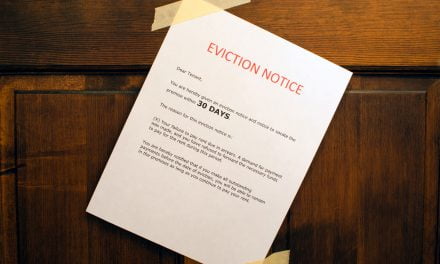Have you ever witnessed fellow real estate professionals commit housing discrimination?
- No. (71%, 10 Votes)
- Yes. (29%, 4 Votes)
Total Voters: 14
Roughly one-in-four adults believe they have experienced housing discrimination at some point in their lives, according to a recent survey by Zillow and the National Fair Housing Alliance (NFHA).
Housing discrimination comes in many forms. In California, the Unruh Civil Rights Act requires real estate professionals to follow high anti-discriminatory measures. It protects against discrimination due to:
- age;
- ancestry;
- color;
- disability;
- genetic information;
- national origin;
- marital status;
- medical condition
- race;
- religion;
- sex (including gender and gender identity and expression);
- pregnancy; and
- sexual orientation. [Calif. Civil Code 51(e)]
Thus, a landlord or property manager may not:
- refuse to rent a dwelling or to negotiate the rental of a dwelling for prohibited discriminatory reasons;
- impose different rents on a dwelling for prohibited discriminatory reasons;
- use discriminatory criteria or different procedures for processing applications when renting a residence; or
- evict tenants or tenants’ guests for prohibited discriminatory reasons.
The highest number of fair housing complaints are in regard to disability status, according to the NFHA. This is followed by complaints of race-based discrimination.
There are two types of discrimination committed by real estate professionals:
- explicit discrimination, for example, when a real estate agent or landlord refuses to show homes to or accept applications from members of a protected group; and
- implicit discrimination, the more common form of discrimination.
According to a decades-long study by the Department of Housing and Urban Development (HUD), implicit racial discrimination ensures minority homebuyers (and renters) are:
- shown fewer properties; and
- given less information by real estate agents.
For example, consider a potential renter who has a disability which makes walking up and down stairs difficult. They are interested in a property that has stairs. When the landlord becomes aware of their disability, they refuse to accept their application, insisting the stairs will be a problem for their disability.
While the landlord may have been well-meaning, their actions were still discriminatory. [42 United States Code §3604(f)(1)]
So what is the appropriate and lawful action the landlord ought to take? In the example above, the landlord doesn’t need to go so far as to build an elevator to accommodate the applicants’ disability — that would be unreasonable. Rather, their duty is to make reasonable accommodations or modifications for their prospective tenant. For example, installing an accessibility ramp at the front entrance may be a reasonable accommodation when requested by the tenant, as long as it does not create a significant financial burden for the landlord. [42 USC §3604(f)(3)]
To ensure brokers, agents, mortgage loan originators (MLOs) and landlords don’t violate non-discrimination laws — even unintentionally — professionals need to:
- ask the same questions of all applicants — for landlords, feel free to ask about matters that will actually impact tenancy like pets or water beds, but never ask about a protected status like race, religion, sexual orientation, pregnancy, disability status, etc.; and
- keep records of client interactions — while a client is unlikely to pursue legal charges for discrimination, it’s best practice for an agent to keep track of all client interactions and property tours for several reasons, including identifying any unintentional biases.
When in doubt, contact a local fair housing expert for advice — find a list of experts at HUD’s website.
Related article:















As a single woman with two children I was unable to get a loan to purchase a small house. Why? Because a single woman could not get a loan on her own, unless, she had a Husband to sign for her. This was in about 1968. I had a good job and decent income, excellent credit and a modest down payment. No matter. No one would “break the law.” The.real estate broker selling me the house helped me by carrying a second TD and helping me assume the VA loan that was on the house. His expertise lead to me becoming a real estate agent, then a broker.
You say:
“For example, installing an accessibility ramp at the front entrance may be a reasonable accommodation when requested by the tenant, as long as it does not create a significant financial burden for the landlord”
That isn’t my understanding regarding who pays. I’ve always understood that in this situation, the tenant is required to pay for accommodations, unless there’s federal money involved. A quick internet search turned this up (I’m not associate with these folks) at https://fairhousing.foxrothschild.com/2009/11/articles/fha-basics/who-pays-for-reasonable-modification-or-reasonable-accommodation-requests/:
“For conventional communities, the general rule is that management is responsible for absorbing the cost of a reasonable accommodation (to the extent there is a cost associated with changing a policy or procedure) but that the resident is responsible for paying for the costs related to a modification of a unit or common area. In practice, management will often agree to some type of cost sharing with the resident as a part of the interactive process expected under the Fair Housing Act (FHA).”
That being said, housing that receives federal financial assistance is covered by both the FHA and Section 504 of the Rehabilitation Act of 1973. Under the Section 504 implementing regulations, structural changes (reasonable modifications) needed by a resident with a disability must be paid for by the housing provider (management) unless providing them would be an undue financial and administrative burden or would represent a fundamental alteration of the program. Indeed, there are also times when management can also offer to meet the resident’s needs through a different accommodation.
Liberalism running wild over there! Been in the business for 40 years. Any landlord or agent that has a renter/buyer that has the down payment and credit with no pets and smoking gets into any one of my buildings. Stop this phony stuff before someone believes it and passes another law to cure non-existent prejudice. This is not 1950….we have all grown up and understand that the only way liberals win is with identity politics. The people that don’t get to rent from me have bad records, bad credit or no money. That is just life….but you have a solution for that too…..guaranteed income!